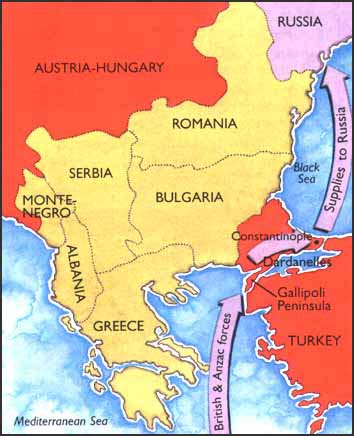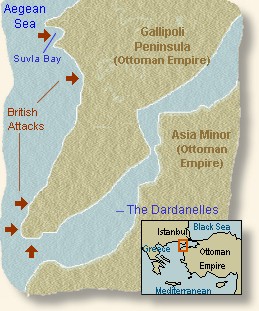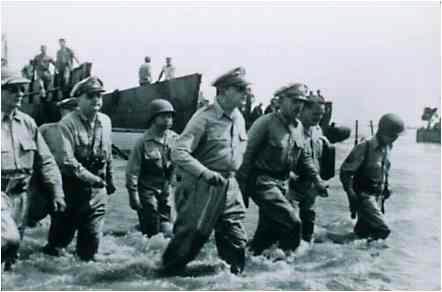The following is another research assignment I have been working on. One of the cool things about owning a leadership and personal development company (LIFE Business) is that I am constantly working upon projects personally and professionally. In other words, one cannot develop others in an area he isn’t developing himself. I am excited about the lessons learned from Churchill’s life and want to share them with you.
Sincerely,
Orrin Woodward
In World War I, the Germans and Austrian pushed the much larger Russian army back towards Moscow, eventually forcing the Russians to sue for peace and launching Lenin on his communist misdeeds. The success of the Germans and Austrians against the numerically greater Russian army was due to two main factors:
1. The superiority of the German strategy
2. The inferiority of the Russian equipment
The first factor was unchangeable from the Allied perspective; however, the second factor could have been altered if only England had followed the advice of its young First Lord of the Admiralty, Winston Churchill. In fact, Churchill, alone among the statesmen and generals of the First World War, bore the distinct marks of genius in his global-vision of the war.
 Churchill had perceived the Russians, despite their superior numbers, would be no match for the double-barreled benefits of strategy and equipment held by the Germans. Churchill was the first to see that England had to deliver better equipment to Russia or lose the Russians to a separate peace. However, the only effective way to deliver equipment to the Russians was through the Black Sea currently blocked by the Turkish enemy at Constantinople. Taking Constantinople would accomplish several strategic benefits in one stroke. First, it would all-but eliminate Turkey from the Central powers alliance. Second, it would ensure the safety of the Orient and third would likely secure additional countries to the allied cause. With Constantinople in Allied hands, arms and ammunitions could be shipped through the Black Sea to Russia, Turkey would sue for peace, and Rumania, Bulgaria, along with Greece would most likely join with Serbia on the allied side and march against Austria. Three dominoes, in other words, would fall by knocking over one.
Churchill had perceived the Russians, despite their superior numbers, would be no match for the double-barreled benefits of strategy and equipment held by the Germans. Churchill was the first to see that England had to deliver better equipment to Russia or lose the Russians to a separate peace. However, the only effective way to deliver equipment to the Russians was through the Black Sea currently blocked by the Turkish enemy at Constantinople. Taking Constantinople would accomplish several strategic benefits in one stroke. First, it would all-but eliminate Turkey from the Central powers alliance. Second, it would ensure the safety of the Orient and third would likely secure additional countries to the allied cause. With Constantinople in Allied hands, arms and ammunitions could be shipped through the Black Sea to Russia, Turkey would sue for peace, and Rumania, Bulgaria, along with Greece would most likely join with Serbia on the allied side and march against Austria. Three dominoes, in other words, would fall by knocking over one.
Unfortunately, as is the price of genius, smaller minds with smaller conceptions could not see the big picture. Churchill, Field Marshall Kitchener, and Sea Lord Fisher were all for the plan; however, the British government was reluctant to support such a daring venture. Validating again that half-hearted measures committed to half-heartedly rarely produce the desired results, the British set up committees to discuss strategies. Not surprisingly, the committee delayed its final decision destroying proportionally the element of surprise for every month of delay. Additionally, the British resolved to strike quickly and resolutely was tamed through the committees less courageous members. Although the operation was neither simple nor straightforward, the strategic advantages obtained through proper execution should have overcome British reluctance. Nonetheless, the committee dithered away its strategic initiative, eventually agreeing to an invasion with too few ships, men, and resolved to complete the task.
 One of the British concerns was the possibility of their ships penned within the Dardanelles channel – 37 miles long and only 2 1/2 miles wide, connecting Constantinople with the Mediterranean Sea. The northern shore was called the Gallipoli peninsula and on the southern shore lay Asia Minor. War demands risk and the rewards, in this case, were certainly worth the risk. Remarkably, even with the delays, the British still caught the Turks unprepared and acted upon quickly would have changed the course of the war. Instead, lacking courage, initiative, and resolve, the British suffered one of the greatest setbacks of the First World War, sacrificing tens of thousands of men on the altar of committee leadership. Sea Lord Fisher, in frustration at the committee, had written to Churchill that never in world history had a committee won a victory; one man was needed. One man, in other words, with the courage to lead. In contrast, the British received numerous second-guessed decisions leading to one disaster after another. Practically every conceivable mistake imaginable ensued during the Battle of Gallipoli, costing men’s lives through lack of leadership.
One of the British concerns was the possibility of their ships penned within the Dardanelles channel – 37 miles long and only 2 1/2 miles wide, connecting Constantinople with the Mediterranean Sea. The northern shore was called the Gallipoli peninsula and on the southern shore lay Asia Minor. War demands risk and the rewards, in this case, were certainly worth the risk. Remarkably, even with the delays, the British still caught the Turks unprepared and acted upon quickly would have changed the course of the war. Instead, lacking courage, initiative, and resolve, the British suffered one of the greatest setbacks of the First World War, sacrificing tens of thousands of men on the altar of committee leadership. Sea Lord Fisher, in frustration at the committee, had written to Churchill that never in world history had a committee won a victory; one man was needed. One man, in other words, with the courage to lead. In contrast, the British received numerous second-guessed decisions leading to one disaster after another. Practically every conceivable mistake imaginable ensued during the Battle of Gallipoli, costing men’s lives through lack of leadership.
England’s first mistake occurred when, contrary to Churchill’s pleas, the English warships bombarded only the outlying forts, giving the Turks advance notice of an impending invasion. In response, 60,000 Turkish men entered the peninsula with the German General Liman von Sanders assigned to command the troops. After a further month long delay, giving the Turks plenty of time to prepare, sixteen British and French ships attempted to force the Dardanelles entrance. The ships had an overwhelming superiority in guns over the resisting forts (58 to 18), but the forts maintained stiff resistance, preventing the Allies from clearing the floating mines at the inlet. Three battleships were sunk outright and three others were badly damaged causing the British squadron to retreat. Strikingly, although the Allies lost a few ships, they were on the verge of a major victory. The Turkish guns had only 8 shots left for each cannon and all of the available mines had already been laid in the straits. Because the chances of procuring more ammunition and mines was slim to none, the Turks contemplated surrender, but received a reprieve with the Allied retreat. In truth, the premature disengagement by the Allied fleet changed Britain’s greatest victory into its greatest defeats of the war.
General von Sanders intuition, that the British would attempt troop landings on the Gallipoli peninsula to breakthrough through the Dardanelles entrance was accurate. He exclaimed, “If only they give me a week’s time!” The British Cabinet, more than complied with his wish. Thus, the second big mistake of the Gallipoli campaign – political infighting leading to costly delays of the troop landings. In essence, the loss of the battleships hurt the pride and prestige of the British Navy, increasing resistance and decreasing the resolve to complete the campaign. Committee members, attempting to save their political skin, placed the blame on anything and everything outside of themselves. The Army and Navy bickered back and forth and the troops invasion date was delayed several times in the process. Finally, a full month too late, 50,000 men landed in Gallipoli and upon the Asia Minor coast. General von Sanders, by now amply prepared, met the invaders with stubborn resistance on all fronts. The attackers, with heavy casualties, progressed no further than three miles inland and stalled. Despite Gallipoli being no more than three miles wide and thirty miles long, the British lacked the leadership resolve to complete its bold undertaking.
The coup-de-grace was reached when, instead of firing the committee, Churchill was relieved of his post and sent into early retirement. Apparently, bureaucratic committees. rather than accept responsibility, choose instead the political short-sighted measure of shooting its best men with the best ideas. Churchill would be persona-non-grata for over twenty years and Russia would sue for a separate peace with the Germans. This was Churchill’s reward for daring to think boldly in a time of war. The lesson here is clear, namely, the greatest minds with the greatest ideas will be snubbed by the smallest minds with the smallest ideas. Leaders must be prepared for this. Fortunately, Churchill bided his time until his genius blossomed before the world during his courageous stand against Hitler in World War II. When a person with big ideas strives to do his personal best, he must expect to meet with the resistance of smaller people with smaller ideas. Nonetheless, a person must never drop his dream to fit in with the crowd. This, in fact, is one of the big secrets of success for Churchill’s life. He had big dreams, big failures, and big accomplishments and it was the courage of his convictions that maintained his equanimity during each phase. Learn from his life the value of following one’s dream, knowing that the failures on the journey only strengthen the character and resolve one will need when his moment of destiny arrives.












